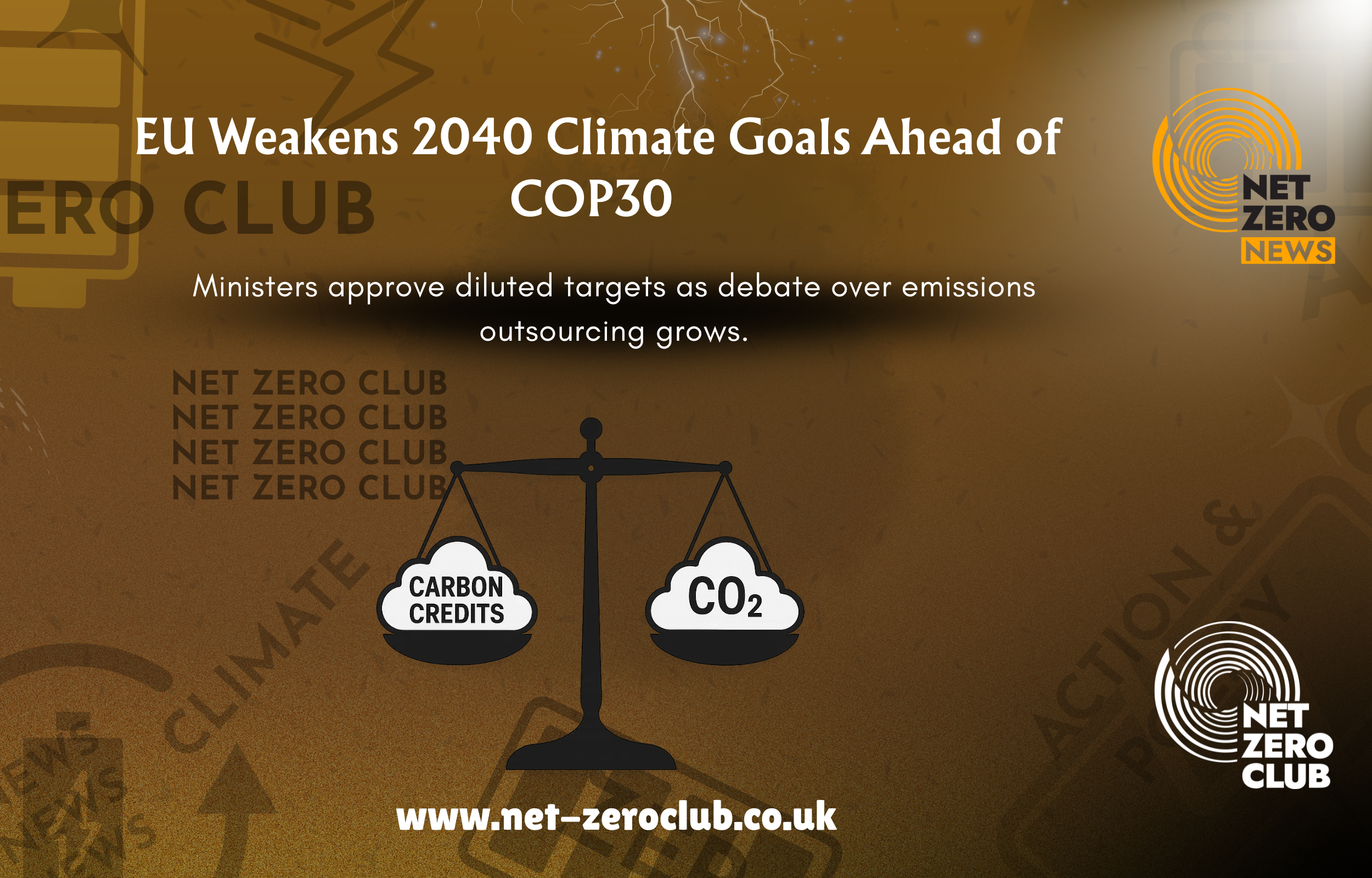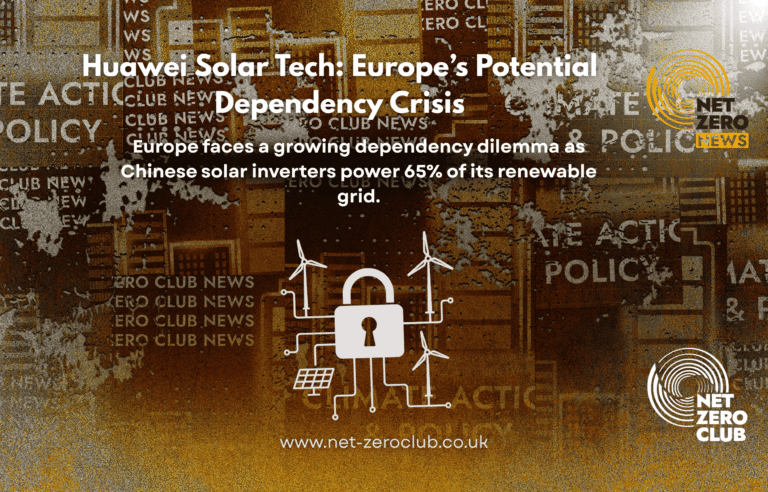EU Nations Set Weakened 2040 Climate Goals for COP30

Welcome, Net Zero News readers,
In a significant yet contentious move, the European Union’s environment ministers gathered in Brussels to reach an agreement that many are calling a diluted version of the ambitious climate objectives previously envisioned for the year 2040. This decision comes as the world prepares for the upcoming COP30 climate summit, set to commence on November 10th, where the EU aimed to present a united front on climate action.
After extensive negotiations that stretched late into the night, the environment ministers unanimously approved a long-awaited climate plan that has been a source of contention among member states. The newly established framework aims to drastically reduce the EU’s greenhouse gas emissions by 66.25% to 72.5% below 1990 levels by the year 2035. While this target is a step in the right direction, it falls short of the bold commitments many climate advocates were hoping for.
The agreement, though not legally binding, sets the direction for EU climate policy over the next five years. This framework mirrors an informal commitment made by the EU during a climate summit in New York in September, a gesture intended to signal the bloc’s dedication to tackling climate change on the global stage.
In a more definitive move, the ministers also adopted a legally binding target aimed at reducing emissions by a substantial 85% by 2040. However, this ambitious target is tempered by allowances for member states to outsource a portion of their emissions reductions through the purchase of international carbon credits. Specifically, the agreement permits nations within the EU to account for an additional 5% of their emissions reductions via these credits, effectively outsourcing their responsibility. This approach raises questions about the integrity of the EU’s climate commitments and whether it undermines the urgency of domestic efforts to reduce emissions.
The negotiations also included a broad review clause, providing the EU with the flexibility to amend its 2040 targets should the implementation of these climate policies adversely affect the bloc’s economy. This safeguard reflects the ongoing tension between economic interests and climate action, highlighting the difficulty of balancing immediate economic concerns with long-term environmental goals.
Moreover, the agreement delays the rollout of the EU’s new carbon market for heating and vehicle emissions, originally slated to begin in 2027. This postponement has drawn criticism from various quarters, particularly from environmental groups who argue that it undermines the urgency needed to combat climate change effectively.
As the negotiations unfolded, certain member states expressed their hesitations. Hungary, Slovakia, and Poland were notably opposed to the 2040 deal, while Bulgaria and Belgium chose to abstain from the vote. Despite these dissenting voices, the majority of the 27 EU countries rallied behind the agreement, underscoring a collective desire to avoid arriving at COP30 without a cohesive plan.
Looking ahead, the European Parliament now faces the task of determining its stance on the 2040 climate target, which will necessitate further negotiations with the Council of the EU before it can be formalised into law. The outcome of these discussions will significantly shape the EU’s climate trajectory and its role in the global fight against climate change.
As we reflect on these developments, it is crucial to consider the broader implications of this agreement. While the EU has taken steps toward setting ambitious climate targets, the allowances for outsourcing emissions reductions and the potential for future adjustments present challenges that could hinder genuine progress. As champions of net zero, it is vital for us to remain vigilant and advocate for robust climate policies that prioritise the health of our planet and the well-being of future generations.
In conclusion, the recent agreement by EU environment ministers marks a pivotal moment in the ongoing battle against climate change. Although it signifies progress, the compromises made raise critical questions about the EU’s commitment to leading the global effort in achieving net-zero emissions. As we approach COP30, the pressure is on for the EU to not only present a united front but to also demonstrate its readiness to take bold actions that align with the urgency of the climate crisis.
Let us continue to engage in dialogue, hold our leaders accountable, and push for the transformative changes necessary to secure a sustainable future for our planet. Your voice matters, and together, we can drive the momentum needed for meaningful climate action.

 Got net-zero news, project updates, or product launches to share?
Got net-zero news, project updates, or product launches to share? 
